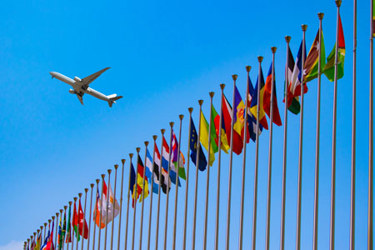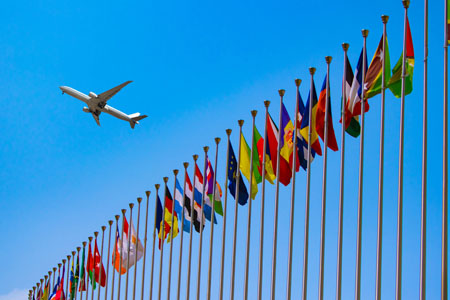By Shweta Maniar

Between the miles of carpeted conference halls I’ve walked (my step counter stopped caring after Dallas), the countless cups of mediocre conference coffee, and enough airplane peanuts to feed a small village, something became crystal clear. While technology provides the tools for healthcare transformation, human connection remains the catalyst for truly transformative breakthroughs.
Digital health innovation has moved far beyond theoretical discussions in academic circles. It’s now a tangible force reshaping healthcare delivery worldwide, but with fascinating regional nuances reflecting each culture’s unique priorities and challenges. After attending conferences from Bio-IT in Boston to healthcare innovation forums in Tokyo, with stops across Europe and India, I’ve observed how these global gatherings serve as vital crossroads for the future of healthcare.
Regional Priorities: Understanding The Landscape
The most striking observation from attending conferences across multiple continents is how regional contexts fundamentally shape digital health priorities. This isn’t just about regulatory differences — it reflects deeper cultural values and systemic challenges.
In the United States, conferences consistently emphasize scale and operational efficiency. There’s a relentless focus on how to leverage AI for predictive analytics, integrate comprehensive data platforms, and rapidly adopt cloud-based solutions. American discussions treat data privacy as foundational: table stakes that enable rather than constrain innovation. The conversation centers on interoperability challenges and scaling solutions across vast healthcare networks.
European conferences tell a distinctly different story. Whether in France, the U.K., or Switzerland, patient-centric care takes center stage alongside rigorous discussions on data privacy. This isn’t regulatory compliance theater; it reflects a genuine commitment to ethical AI deployment and individual rights. European innovators spend considerable time on real-world evidence generation, partly because they must prove efficacy across diverse regulatory frameworks from country to country. The result is more deliberate approaches to chronic disease management and ensuring equitable access across diverse populations.
Asia presents yet another paradigm entirely. Japan, shaped by demographic shifts and cultural factors, showcases clear leadership in robotics and AI for elder care. The acceptance of telemedicine there far exceeds most other regions, reflecting cultural comfort with technology integration that many Western countries are still developing. Meanwhile, countries like India focus on mass-market solutions — affordable, accessible digital health tools designed for smartphone-first populations where mobile health isn’t just convenient, it’s essential infrastructure.
The Universal Thread: Digital Transformation As Imperative
Despite these regional differences, one theme emerges universally: digital transformation is no longer optional. Every healthcare system faces escalating costs, aging populations, and increasing chronic disease burden. The question isn’t whether to embrace digital solutions, but how quickly and effectively organizations can implement them.
This convergence becomes particularly evident in clinical trial optimization, a topic that generates intense interest regardless of geography. From Tokyo to Paris to Las Vegas, healthcare leaders want practical answers about how AI and digital tools can streamline trial design, improve patient recruitment, enhance retention, and accelerate data analysis.
Here’s where the cross-pollination becomes valuable. When I share how an organization uses internal databases and AI tools to identify potential clinical trial participants — perhaps finding an additional 100 eligible diabetes patients and successfully enrolling 35 of them — the interest is immediate and universal. The appeal is obvious: more efficient trials mean faster time-to-market for better treatments, ultimately benefiting patients worldwide.
Learning Without Copying: The Art Of Cross-Pollination
The beauty of global conferences lies not in simple knowledge transfer, but in intelligent adaptation. Organizations like the World Health Organization and initiatives like the Global Digital Health Partnership facilitate this exchange, but the real magic happens in individual conversations and follow-up collaborations.
When I discuss American innovations with Japanese audiences or European breakthroughs with Indian companies, the goal isn’t copy-paste implementation. Instead, it’s understanding principles that can be adapted within local regulatory frameworks and cultural contexts. A hospital database tool that works within HIPAA guidelines in the U.S. might inspire a similar approach in Japan, but the implementation must comply with Japan’s Act on Protection of Personal Information (APPI) and Clinical Trials Act (CTA).
This creates something more valuable than direct replication. It generates locally optimized solutions that address universal challenges, while respecting regional constraints and values.
The Power Of Strategic Networking
The most valuable insights don’t always emerge from keynote presentations or panel discussions. They come from strategic conversations between sessions, thoughtful connections made during coffee breaks, and systematic follow-up that extends far beyond conference walls.
Maximizing conference value requires intentional preparation, active engagement, and disciplined follow-through. I’ve learned to research speakers and agenda items beforehand, create targeted meeting opportunities around official programming, and maintain detailed notes for post-conference action planning. Today’s AI tools help transform hastily scribbled observations into coherent insights that can be shared with broader teams and translated into organizational strategy.
The follow-up phase is where relationships become collaborations. I regularly connect Japanese pharmaceutical companies with Swiss counterparts working on similar challenges, or share Indian mobile health innovations with European organizations exploring accessible care delivery. This isn’t networking for networking’s sake — it’s democratizing access to innovation by creating bridges between regions and sectors.
Cultural Perspectives As Competitive Advantage
Regional and cultural perspectives don’t just influence priorities, they fundamentally shape the nature of digital health solutions. Collectivist societies in Asia often emphasize family-centric care and community health initiatives, while more individualistic approaches in Western countries focus on personal health management and individual data ownership.
Neither approach is inherently superior, but both contribute essential perspectives to the global healthcare innovation ecosystem. These cultural differences become competitive advantages when shared globally. High-income countries increasingly look to low- and middle-income nations for “frugal innovation,” or efficient, cost-effective solutions born from resource constraints that might never emerge from well-funded environments.
This reverse innovation flow enriches the global healthcare toolkit with practical, scalable approaches that challenge assumptions about what’s possible with limited resources.
Building Trust Through Transparency
One consistent theme across all regions is the importance of building trust in digital health technologies. This requires transparency about how tools work, clear communication about data usage, and demonstrated commitment to patient privacy and safety. Different regions prioritize these elements differently, but all recognize their fundamental importance.
The regulatory landscape varies significantly — from HIPAA in the United States to GDPR in Europe to Japan’s APPI — but the underlying principle remains constant: healthcare organizations won’t adopt tools until they understand how those tools comply with local frameworks and cultural expectations.
The Path Forward: Collaboration As Catalyst
Global health challenges like pandemics, chronic diseases, and antimicrobial resistance transcend borders. These challenges won’t be solved by any single country or region working in isolation. They require the kind of collaborative innovation that global conferences facilitate.
The future of healthcare lies in leveraging technology’s power while nurturing the human connections that guide its thoughtful application. Global conferences serve as crucial catalysts, bringing together diverse perspectives, fostering cross-cultural understanding, and creating relationships that transform promising concepts into transformative healthcare solutions.
While each region will continue to innovate based on its unique strengths and priorities, the most significant breakthroughs will emerge from sustained global collaboration. In healthcare innovation, as in healthcare delivery itself, the whole truly is greater than the sum of its parts.
Yes, I’m tired. Yes, I wish the coffee were better. But I am energized and profoundly grateful for this vantage point. It’s a privilege to witness innovation taking shape in real time, to see barriers dissolve through shared purpose, and to participate in conversations that will repeat and activate throughout the healthcare ecosystem worldwide.
The vision for global health is one where innovation is democratized, solutions are universally accessible, and the well-being of every individual is prioritized. Global tech conferences are not merely contributing to this vision; they are actively building its foundation, one collaborative breakthrough at a time.
The miles of conference carpet may be exhausting, and the coffee may leave something to be desired, but the connections made, and insights shared in these global gatherings are shaping a healthier future for everyone.
About The Author:
 Shweta Maniar is Global Director, Healthcare & Life Sciences Solutions at Google. She is responsible for the global strategy to support the Life Science industry and leads the charge to transform drug discovery through generative AI, a transformative technology that goes beyond static data, leveraging dynamic modeling to unlock new possibilities in life sciences.
Shweta Maniar is Global Director, Healthcare & Life Sciences Solutions at Google. She is responsible for the global strategy to support the Life Science industry and leads the charge to transform drug discovery through generative AI, a transformative technology that goes beyond static data, leveraging dynamic modeling to unlock new possibilities in life sciences.


AloJapan.com